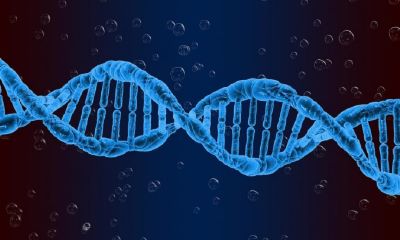APAC region contributed around 50% of the in-vitro diagnostics market in 2022

Lung cancer is one of the prevalent forms of cancer in the Asia-Pacific (APAC) region. Genome sequencing-based analysis is imperative to bring precision in lung cancer therapy. Lung cancers are often a result of DNA mutations, which can be detected using DNA sequencing methodology, often referred to as a liquid biopsy. Recently, several APAC nations have joined together to facilitate DNA-based lung cancer diagnosis by creating a comprehensive lung cancer genomic screening platform called the LC-SCRUM-AP. This platform will give lung cancer patients more precise and quicker diagnoses and access to precise clinical intervention, according to GlobalData, a leading data, and analytics company.
According to GlobalData’s research, the APAC region contributed around 50% of the in-vitro diagnostics market in 2022. The real-world data from the genomic screening projects will not only enable the development of in-vitro diagnostics but also promote the development of drugs targeting specific mutations. Thus, genomic screening databases are expected to drive further growth in the in-vitro diagnostics market and impact the healthcare industry.
Dr. Satyajeet Salunkhe, Medical Devices Analyst at GlobalData, comments: “Lung cancer diagnostics are gradually shifting toward liquid biopsy which helps in distinguishing cancer types by the detection of DNA mutations. As these screening methods become more effective, patients will benefit from faster and more precise results. For these tests to be more effective, it is imperative to map genetic mutations, and the combination of these mutations, that lead to lung cancer.”
Precision Medicine Asia has recently launched the Lung Cancer Genomic Screening Project for Individualized Medicine (LC-SCRUM-AP) in collaboration with Japan's National Cancer Center Hospital East. LC-SCRUM-AP project will enable active collaboration among institutions in Australia, Singapore, Thailand, Malaysia, Vietnam, Indonesia, and Taiwan.
The LC-SCRUM-AP initiative will screen patients, who have advanced or recurrent non-small cell lung cancer. The patients will be classified based on the presence of mutations in important genes such as EGFR, ALK, and ROS1. Consequently, clinicians can use DNA sequencing data to prescribe mutation-specific drugs to these patients.
Dr. Salunkhe concludes: “Liquid biopsy offers faster detection of circulating tumor DNA (ctDNA), which helps in the early detection of lung cancer. Thus, liquid biopsy followed by DNA sequencing can help to deliver personalized therapy to cancer patients. It remains one of the promising approaches to achieve better clinical outcomes in terms of reduced mortality and improved overall survival rates.”

Subscribe To Our Newsletter & Stay Updated